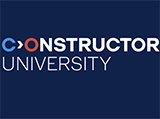Detailed introduction of Jacobs University Bremen:
Introduction
Jacobs University Bremen is an international private research university located in Bremen, Germany. It uses English as the language of instruction and combines the advantages of the American and German academic systems. Students come from more than 110 countries and regions.
Overview
Students and Faculty: In the 2021-2022 academic year, the school has 1,607 students, of which about 80% are foreign students. The faculty includes 239 academic staff, of which 69 are professors.
Subjects and majors: The school offers study programs in the fields of engineering, humanities, natural and social sciences, covering degree courses from bachelor to doctoral.
History and establishment time
In November 1997, representatives of the Bremen City Government, the University of Bremen and Rice University in the United States discussed the establishment of an international private research university.
In 1999, the school began to be planned and established, with the joint support of the Bremen State Government, the University of Bremen and Rice University in the United States.
2001 It officially started to enroll students in 2000, and was originally named Bremen International University.
In November 2006, it received a donation of 200 million euros from the Jacob Foundation.
In February 2007, it was renamed Jacob University of Bremen.
In November 2022, it was renamed Konst University.
School Strength
Teaching Strength: It adopts small class teaching with a teacher-student ratio of 1:10, which is second to none among German universities. Students can get more attention and guidance, which helps to improve the quality of teaching. The school also offers university preparatory courses and medical preparatory courses to help students prepare for undergraduate studies.
Research Strength: The school has achieved fruitful research results. Professors and researchers have made important research achievements in many fields. For example, in 2009, Professor Antje Boetius won the most famous research award in Germany - the Gottfried Wilhelm Leibniz Award, and in 2010, Professor Thomas Heine received 1.5 million euros in funding for emerging independent researchers from the European Research Council.
Institutional Nature
Private University.
Educational Philosophy
Focus on interdisciplinary research and teaching, cultivate students' global vision, cross-cultural communication skills and the ability to solve complex problems, so that students can play a leading role in an increasingly globalized world and assume social responsibilities.
Key Laboratories and Disciplines
Key Disciplines: Energy and Environment, Food, Water Resources and Health, Education, Information and Communications, Peace and Conflict are the school's key research areas. It also has strong discipline strength in engineering, natural and social sciences, such as biological and geographical sciences, electrical engineering and information technology, global economy and management, etc., which perform well in the German university rankings.
Key Laboratory: The school has nine research centers, namely Growth -- Interactive Process Center, Advanced Systems Engineering Research Center, Cognitive Systems and Processes Research Center, Cognition, Decisions, Values and Welfare Center, Mathematics, Modeling, Computer Center, Molecular Life Science Center, Functional Materials and Nanomolecular Science Center, European and Asian Market, National and Social Transformation Research Center, Visual Communication and Technology Center.
Department Settings
School of Engineering and Science: including the Department of Natural and Environmental Sciences, the Department of Life Sciences, the Department of Electrical Engineering and Computer Science, the Department of Mathematics, and the International Logistics Engineering Department.
School of Humanities and Social Sciences: covering cultural studies, social and cognitive psychology, social sciences, integrated culture and behavior, international politics and history, and integrated environmental studies , global economy and management, international logistics management and other majors.
Center for Lifelong Learning and Institutional Development: offers master's and doctoral programs, mainly involving adult development such as business administration, behavioral economics, organizational behavior, health psychology, life span psychology and sociology.
Bremen International Social Science Institute: offers doctoral programs, covering global integration, integration and diversity of the new Europe, social integration and welfare state, attitude formation, value transformation and cross-cultural communication, and life course and life dynamics research.
Ranking
In the German University Rankings produced by the German Center for Higher Education Development (CHE) and the well-known magazine "Times", since Since its first participation in the evaluation in 2005, it has maintained excellent results, with many majors ranking among the top.
It is ranked in the 251-300 range in the Times Higher Education World University Rankings.
Expenses
Tuition fees: The annual tuition fee for undergraduates is about 20,000 euros.
Food and lodging fees: 6,000 euros per year (9 months, including winter vacation accommodation).
Campus
Location: Located in the Feigesak district in the north of Bremen, Germany, the campus covers an area of 80 hectares and was formerly the Roland Barracks.
Campus facilities: There are four boarding colleges on the campus, each of which is composed of students and faculty from different departments, nationalities and ages, equipped with sports and conference centers, sports fields, cinemas, theaters, student activity centers, multi-faith halls, cafes, multiple student clubs, and even kindergartens/preschools. In addition, there are academic resources such as lecture halls, classrooms, laboratories, and modern information resource centers.
Campus culture: Students come from all over the world and speak more than 60 different languages. The campus culture is diverse and vibrant. There is frequent communication and interaction between teachers and students. Students can participate in various club activities to enrich their extracurricular life.
-

Heidelberg University
-

University of Freiburg
-

University of Jena
-

University of Marburg
-

University of Rostock
-

University of Halle-Wittenberg
-

University of Bayreuth
-

Leipzig University
-

University of Tübingen
-

Humboldt University of Berlin
-

Mesoamerican University
-

Istmo University
-

Mariano Galvez University of Guatemala
-

Regional University of Guatemala
-

Galileo University
-

Francisco Marroquín University
-

Rafael Landívar University
-

University of the Valley of Guatemala
-

University of San Carlos of Guatemala
-

Technological Institute of Tlaxcala Plateau
-

Golfo University
-

Technological University of South Sonora
-

Technological University of Huejotzingo
-

Tizimín Institute of Technology
-

Chilpancingo Institute of Technology

